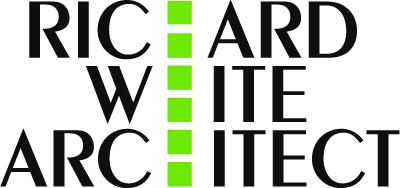BIO
Richard White Architect was established in May 1989 and is certified by the Ontario Association of Architects. The practice offers service in areas of architecture, renovation, interiors, furniture design, planning and land use design. Within these fields the firm has established a reputation for design excellence and close attention to clients' needs.
Richard White, B. Sc. (Arch), B. Arch., OAA. Richard's architectural training is through McGill University's School of Architecture, where he received a Bachelor of Science (Architecture) in 1971 and a Bachelor of Architecture in 1974. He moved to Renfrew County in 1977 where he worked independently as designer until 1987 at which time he was employed as an architect until he established his own practice in 1989.
MENTORS
Christopher Alexander
Christopher Alexander has been a mentor through his series of books including 'The Timeless Way of Building' and especially 'The Pattern Language'. Ernest Callenbach writes that the Pattern Language "is overwhelming ambitious- to establish a language for talking about what people really need from buildings and communities drawing from many epochs and cultures but focusing on their own. The genius of Alexander et al. Is that they simply ignore the stylistic fadmongering that passes for architectural thought, and get on with sensible, useful, highly distilled wisdom about what works and what doesn't. The most important book in architecture and planning for many decades, a landmark whose clarity and humanity give hope that our private and public spaces can yet be made gracefully habitable." One measure of success is whether a house feels as if it has always been there - that it belongs. More information about Christopher Alexander can be found at the Nikos A Salingaros website.
Paul Hawken
I also admire and have been influenced by Paul Hawken, an economist and writer who writes that "in an informative economy, the goal is to produce the greatest amount of information with the least amount of mass. Labor is information; it informs mass, not labor per se, but intelligent labor, work that imbues or inspires mass with a higher quality or nature. Intelligent design and durable materials characterize an object made in the informative economy. It is built to last longer, constructed to work more appropriately and efficiently and reflects the care and ingenuity of the maker(s). The formula amounts to fewer resources and more information - defining information to be skill, durability, design, care, craftsmanship and utility."

